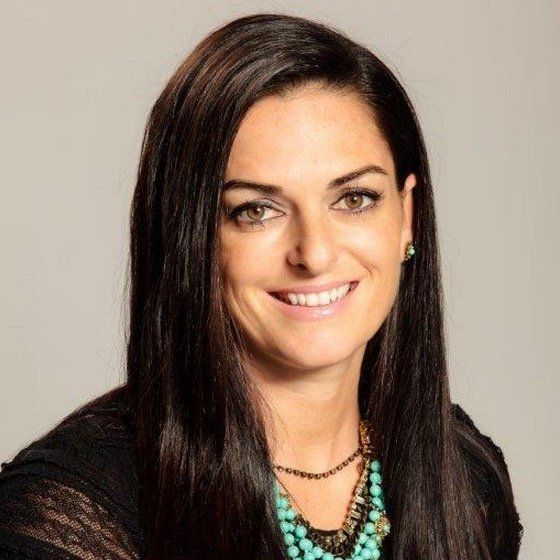See if you qualify.
Take 30 seconds to answer a few questions and I will contact you with the loan amount for which you qualify.
Contact Us
We decided to build a
sunroom so we could enjoy
some fall and winter sun
without having to travel. My CHIP Reverse Mortgage
let me build my sunroom
without having to make
loan payments.
Bob H.
We needed to be able to manage
our lives without the family
supporting us. The CHIP Reverse
Mortgage means having a life.
Gordon & Aubrey A
The CHIP Reverse Mortgage
frees you up to move forward in
more positive ways, rather than
being forced into a situation
you’re not too happy with.
David H
HOW TO APPLY
The Process is Simple
Contact me
Contact me for more information about securing a reverse mortgage on your home. Start Here
to get an idea of how much you could qualify for.
Get an appraisal
Once you decide to proceed, I will help arrange for an appraisal of your home.
Fill out an application
Once we receive the appraisal, you’ll know exactly how much you are approved for. I can walk you through the application process, you can decide exactly how much money you would like to access, and we can get the process started.
Speak to a lawyer
You will want to talk with a lawyer and receive independent legal advice. However, in many years of experience, 99 out of 100 homeowners have money left over when their CHIP Reverse Mortgage is repaid. And on average, the amount left over is 50% of the value of the home when it is sold.
Get your money
You will receive your tax-free money as a lump sum or multiple instalments.
No Repayment While Living In your Home
Regular mortgage payments are not required while you or your spouse are living in the home. The full amount only becomes due when you and your spouse no longer live in the home.
MORE
Frequently Asked Questions
*Some Conditions Apply
I stayed in the home I love
I’ve lived in the same house for over 30 years. I know
everybody in the neighbourhood; we’d all spent years
together. It’s like my neighbours are a second family.
When I retired, I really thought I’d have to downsize
and move to be able to afford a comfortable retirement. I reached out to my mortgage broker and she recommended
HomeEquity Bank. The CHIP Reverse Mortgage made it easy
for me to stay in the home I love, close to my family and
friends – even after retiring. I don’t know where I’d be without CHIP.
Joanna, CHIP Reverse Mortgage Owner
We retired our way
My wife and I started working full-time at a very young age.
We bought our first home together when we were both just
24. I still remember the day we picked it out – it was perfect!
After we had our third child, we knew we would always be
working to stay on top of our mortgage payments. That
meant we would have a tough time travelling, something
we’d always dreamed of doing together. Since retiring,
we have had the freedom to travel to three continents. Thanks to CHIP, we're retiring exactly how we wanted.
Greg, CHIP Reverse Mortgage Owner
MORE
Myths About Reverse Mortgages
Reverse mortgages have evolved from a needs-based product to a product many financial
planners recommend as an important component of a comprehensive retirement plan. Below, the myths are separated from the facts.
*Some Conditions Apply
RESOURCES
Reverse Mortgage Articles

For older Canadians – living on a set income can be difficult. To make matters worse, unexpected medical events and many other financial matters arise that can make a tight financial situation even worse. As a result, a growing number of seniors in Canada turn to the equity in their home as a source of financial relief.
What Is Home Equity?
Home equity can be defined as the actual value of your property. Simply put, home equity is the difference between what you owe on your home and your homes fair market value. For instance, if your home has a market value of $300,000 and you only owe $50,000, you have $250,000 of equity in your home.
One of the biggest advantages of home ownership is the opportunity to build equity. Even though you may not be able to sell your equity, home equity loan options allow you to access the equity in your home to take care of any of your needs, expenses, or to simply live a higher quality of life. Generally, there are three different types of home equity loan options for seniors: a home equity line of credit, a second mortgage, and a reverse mortgage. The following information explains each of these three options in detail.
What Is a Home Equity Loan?
A home equity loan is a type of loan in which the borrower uses the equity of his or her home as collateral. Home equity loans are often used to finance major expenses such as home repairs, medical bills, a new car, university tuition for child, or other contingencies faced by homeowners. Home equity loans can be used only as re-finance options and not as collateral to purchase a new property.
What Is a Second Mortgage?
Home equity in Canada can be used as collateral for a second mortgage on your home. The bank issues you a cheque in a lump sum based on the available equity in your home for you to spend as you like. A second mortgage typically has a set amount of time you have to repay the loan (term) as well as fixed interest rate. After you have received the proceeds from your loan, you need to make monthly payments on the second mortgage until its paid in its entirety.
What is a Home Equity Line of Credit (HELOC)?
A home equity line of credit (HELOC) is similar to a second mortgage. However, the issuing financial institution doesn’t release all of the funds in one lump sum. The money can be accessed as you need to or when you choose to for whatever reason. For example, if you have $200,000 of available equity and have a HELOC for $125,000, you can access these funds using similar features as you would for a chequing account. You will only be responsible for paying interest on the amount of equity you actually use.
A few typical characteristics of HELOCs are:
Fluctuating interest rates
In many cases, lenders offer a special low “introductory rate.” However, this rate will commonly increase after a month or two. While HELOCs may seem to be the best way to access the equity in your home, the fluctuating interest rates can cause your payments to drastically increase.
Advance periods
The majority of HELOCs have what is known as an advance period, which is a set period of time you are allowed to access the money in the HELOC. This period can be five years, ten years, etc. After the advance period is over, you are not able to withdraw any additional money. More importantly, following the advance period is the repayment period, which is the time you are supposed to repay any borrowed monies.
Reverse Mortgage Home Equity Loans
If you are a homeowner in Canada and are 55 years of age or older, you may qualify for a reverse mortgage. A reverse mortgage is designed for you to convert the equity in your home into cash to help pay for increased living expenses, health care costs, a home renovation, a vacation, or anything else you need. While traditional mortgages require you to pay monthly payments, a reverse mortgage does not require monthly payments. With a reverse mortgage the bank makes monthly payments or a lump-sum payment to you based on a percentage of the value and equity of your home, your age, amount of secured debt, property type, and property location . You continue to live in your home and must meet certain requirements. Reverse mortgages are designed to offer you another stream of income so you can spend your golden years living comfortably. After you are deceased, move, or sell, the loan will be reconciled with the value of the property.
Key Differences in Home Equity Loan Options
Disbursing funds
- Reverse mortgages offer an enhanced level of flexibility. You can receive monthly payments or you can choose to receive a large lump sum payment.
- Home equity lines of credit allows you to access the funds through a credit card and/or a checkbook. However, it’s important to understand you will only be able to access this credit line during a set advance period. After the period has expired, you will be expected to begin repaying the balance.
- Second Mortgages in Canada disburse the proceeds in one lump sum payment.
Repayment
- Reverse mortgages offer the premier and most formidable solution for seniors in Canada with deferred repayment. This means your loan will only become due if you become delinquent on your insurance and/or property taxes, you move, if the home falls into disrepair, you sell the home, or you pass away. In most cases, a reverse mortgage is repaid from the sale of the home after the death of the homeowners. This allows the seniors to live comfortably, vacation, and enjoy time with their family while they are alive without amassing a significant amount of secured debt.
- HELOCs have a repayment function based on the amount that was borrowed as well as the current interest rate. Considering interest rates change, your monthly payment could be affordable one day and unaffordable the next. This repayment option is the least favorable for individuals who are on a set income. It may become a challenge for seniors to service the debt, especially if they are looking for home equity loan options to supplement reductions in income during retirement. Seniors may find it difficult to qualify for a HELOC as there are income requirements. They may stand to lose the property to repay the loan, if the lending institution decides to recall the loan.
- Second Mortgages set monthly payments based on a fixed interest rate, which is more favorable than the HELOCs’ fluctuating payments, but less favorable than the terms of a reverse mortgage.
Second mortgages, reverse mortgages, and HELOCs all enable you to get cash out of your available equity. While they have this in common, they differ in terms of disbursement, repayment, and several other areas. If you are over the age of 55 and are interested in a source of long-term income, reverse mortgages are the premier solution.
Reverse mortgages are designed to allow you to truly enjoy your golden years in your home. With the proceeds from reverse mortgages, you can pay off debts, renovate your home, cover health care costs, help family members, take a vacation, and live comfortably. These types of home equity loans offer you another stream of income, so you can enjoy the rest of your life.
This article is the property of HomEquity Bank and has been published with permission.

Understanding home equity can be a difficult proposition if you’ve never engaged the issues before—even if you have some passing familiarity with other aspects of finance, real estate and the associated values can seem like an entirely new language.
Understanding Home Equity: What is a home equity loan?
A home equity loan is a type of loan where you utilize the equity of your home—the difference between fair market value and the outstanding balance of all liens on the property—as collateral for a loan. This creates an additional lien against the property and can be used to fund whatever you need.
Understanding Home Equity: How do I get a home equity loan?
Typically speaking, home equity loans require good to excellent credit, as well as a reasonable loan-to-value and combined loan-to-value ratios, i.e. it needs to be a safe bet for the lender. If you meet those standards, you’ll want to approach a lender, such as your bank, and choose from the terms they provide. Specifics will vary greatly depending on the size of the loan, your repayment goals, and of course the values inherent in your home.
Understanding Home Equity: Home Equity Loan Myths.
Home equity is a subject rife with misunderstandings and myths. Here are few to be aware of:
- Pre-approval is a guarantee:
This isn’t at all true—pre-approval only means that you have a lender’s interest. They may still renegotiate or back out of offering you a loan when they get a better look at your situation.
- I need to spend the money on the house:
This is a common use of home equity loans, but not a rule—you can use the loan to pay for a new car, or college, or anything. It’s a lump sum loan against your equity, to spend as you prefer.
- If I default, I won't really lose my house:
There are some situations where default on your home equity loan won’t lose your house, but they’re few and far between. A home equity loan is a huge risk, if you’re not going to be 100% comfortable making payments—if they were easy to slip out of, banks wouldn’t offer them.
Understanding Home Equity: What about a HELOC?
A HELOC, or Home Equity Line of Credit, is an alternative to the lump-sum payment typically offered by a home equity loan. Instead of fixed terms and a fixed lump sum, you receive a line of credit pegged to a variable interest rate. This offers advantages and disadvantages to the borrower; you can borrow what you need when you need it, but the rates will often be less advantageous to you than you would experience with a traditional lump-sum loan.
HELOCs often offer advantages for savvy tax planning and are viewed more favorably than a second mortgage by anyone considering debt, as well. Outside of these notable differences, however, a HELOC offers many of the same limitations, risks, and benefits of a traditional home equity loan—a failure to repay will lead to foreclosure and the loss of your home.
If a home equity loan doesn’t sound quite right to you at this point, read on–there are many other ways to tap the value of your home. The current rising star of home finance is the reverse mortgage—the home equity loans close cousin.
Understanding Home Equity: What is a Reverse Mortgage?
Reverse mortgage loans are a special form of loan, typically only available to seniors, which allows people to access the equity of their home without selling. Essentially, a reverse mortgage is a home equity loan with the interest and principal deferred so long as you occupy the premises. If you move out or pass away, the loan comes due and debt collection begins. This makes a reverse mortgage an excellent source of funds if you’re planning to stay in your current home indefinitely, and aren’t worried about passing the home on free and clear to an heir.
Understanding Home Equity: How do I get a reverse mortgage?
Depending on the nation, the rules for reverse mortgages may be different. In Canada, for example, they’re restricted to homeowners over the age of 55. Unlike a typical home equity loan, however, your credit standing and income won’t matter. Once you meet the age requirement established by your country, you must approach an approved provider of reverse mortgages and submit an application. You’ll need to determine how you wish to receive the money, as reverse mortgage loans offer a high degree of flexibility; you could receive a lump sum, regular payments to supplement income, an open line of credit attached from which you can charge a card or write checks, etc. This will all need to be worked out with the loan provider, as will an assessment of your equity.
Understanding Home Equity: Reverse Mortgage Myths.
As they’re less well-known than other financial services, reverse mortgages are the source of countless myths and misapprehensions. Here are a few to be aware of and move past:
- A surviving spouse will lose the home or have to begin payments.
If your surviving spouse signs with you, then the loan will continue to be deferred until they pass or sell the home.
- I have to sign my house over to the lender.
When you borrow with a reverse mortgage, you retain full and complete ownership of your house.
- Reverse mortgages are costly.
The same regulations covering other lending practices protect homeowners against excessive fees for reverse mortgages, keeping them fair and reasonable.
- You can’t reverse-mortgage a home with an existing lien on it.
You’re borrowing against your equity, meaning you can borrow even if your home still has a lien on it—in fact, you can use a reverse-mortgage to clear other liens, if you like.
- The lender can force me to move out and repay the loan.
Again, you maintain full ownership of your home under a reverse mortgage—the lender cannot compel you to move or force your hand in any way.
- Heirs can end up paying more than the house is worth.
Even if you end up receiving more than the value of your home under a particular plan, the debt accrued can never exceed the value of your home—so your heirs will NEVER have to pay more than your home is worth.
Final Thoughts
Ultimately, the best way to access the equity of your home today will depend upon your income, age, aims, and credit. Many find a traditional equity loan ideal for their purposes—others find the deferred debt of a reverse mortgage far more useful and palatable. Regardless, incurring any debt, even one you don’t expect to come due until after you pass, deserves careful consideration and deliberation. Choose wisely, and make the most of your home’s hidden value.
This article is the property of HomEquity Bank and has been published with permission.

Living well in retirement isn’t as easy as most people envision when they’re in their youth. Utilities, medical payments, prescriptions, insurance and just day-to-day living expenses often increase more rapidly than pensions, dividends and interest income. Even when you own your home, making ends meet at the end of the month can be a challenge for seniors. That’s where a reverse mortgage can help many Canadian seniors aged 55 and older.
How does a reverse mortgage work?
How can I qualify for a reverse mortgage?
What is a reverse mortgage?
These are just some of the questions that can arise while considering a reverse mortgage. A reverse mortgage is a financial product that allows Canadian seniors (age 55 and older) to tap into the equity that they’ve accumulated in their home. For many people, that equity is their largest single asset. Homeowners can access only up to 55 percent of their home equity as reverse mortgage, as long as they remain in that home. The exact amount a homeowner will receive depends on the property type, location, the home’s value, and the age of the applicant(s).
To qualify for a reverse mortgage in Canada, homeowners must use the residence as their primary home, maintain the property is good standing, stay up to date with insurance, continue to pay property tax and pay off any outstanding debts secured with the home with the proceeds from the CHIP Reverse Mortgage. Unlike other mortgages and loans, there is no health check or minimum income required with a reverse mortgage.
You will never be forced to sell or move as a result of changing home values or earning. The amount that you or your estate eventually has to repay will never exceed the fair market value of your home at the time it is sold. There’s no reason your home should ever be a burden to you or your family. The loan will be recalled only if the last homeowner passes away or moves out of the home.
Using Reverse Mortgage Funds Wisely
There are almost no conditions on how you use the proceeds of a reverse mortgage loan and homeowners are not required to make payment towards the interest or principal of the loan. This is often not the case with other types of loans or mortgages such as a Home Equity Line of Credit, or HELOC, that requires regular payments. Just a few of the smart ways how Canadian seniors can use reverse mortgage funds include:
- Make improvements to your home.
Keeping up with your home’s maintenance is essential to having a safe and secure living environment. If you’ve had to put off things like replacing your roof or replacing your heating system, the funds from your reverse mortgage loans can help make these essential updates possible. Canadian seniors can also use their loan proceeds for other upgrades, such as adding a deck, replacing countertops and/or remodeling the kitchen.
- Pay down debt.
High interest rates from credit cards can make it tough to ever get fully out of debt. You can get rid of some of your monthly bills by using your reverse mortgage funds to pay off those high credit card balances.
- Pay off medical bills.
If a recent illness has wiped out your savings and left you with a pile of bills, a reverse mortgage can give you the funds to pay off all of those bills and allow you to sleep better at night.
- Pay for leisure activities.
You can use your reverse mortgage to engage in leisure activities in retirement or enhance your lifestyle. This could include travel to various destinations – local or abroad or indulge in favorite hobbies, which may require monetary investment.
If you choose to take out a reverse mortgage loan, you keep the deed to the property. You only have to give up ownership of the house if/when you move out or sell the property. You can stay as long as you stay current on your taxes, maintenance and insurance. There’s no maximum length of time that you can live there.
Advantages Of A Reverse Mortgage Loan
A reverse mortgage loan offers a number of advantages to Canadian seniors. First, the funds you receive are completely tax-free. In addition, you can use the money any way you choose; pay off bills, remodel the house, or take a much needed vacation. Lastly, there are no payments required!
Applying For A Reverse Mortgage Loan
Canadian seniors can apply for a reverse mortgage loan from HomEquity Bank, the only provider of the CHIP Reverse Mortgage.
In order to qualify…
- You (and your spouse) must be 55 or older
- You must use the property as your primary residence
- The balance of any existing mortgage or lien against the property must be paid off by the proceeds from the reverse mortgage (or by other funds before the reverse mortgage is taken)
- Your home is in a location and of a type that HomEquity Bank typically lends on
CHIP Reverse Mortgages
Reverse mortgages for Canadian seniors are a little different from reverse mortgage products sold in the United States. All reverse mortgages in Canada are provided by HomEquity Bank, a Canadian Schedule 1 bank. The CHIP Reverse Mortgage has been assisting seniors for more than 25 years. Homeowners can get the proceeds from a reverse mortgage loan in a lump sum or in periodic advances. A reverse mortgage can be one of the choices for Canadian seniors looking for a way to supplement their monthly income. This financial product can help you get rid of debt, make necessary improvements to your home, or assist with day-to-day expenses.
This article is the property of HomEquity Bank and has been published with permission.



